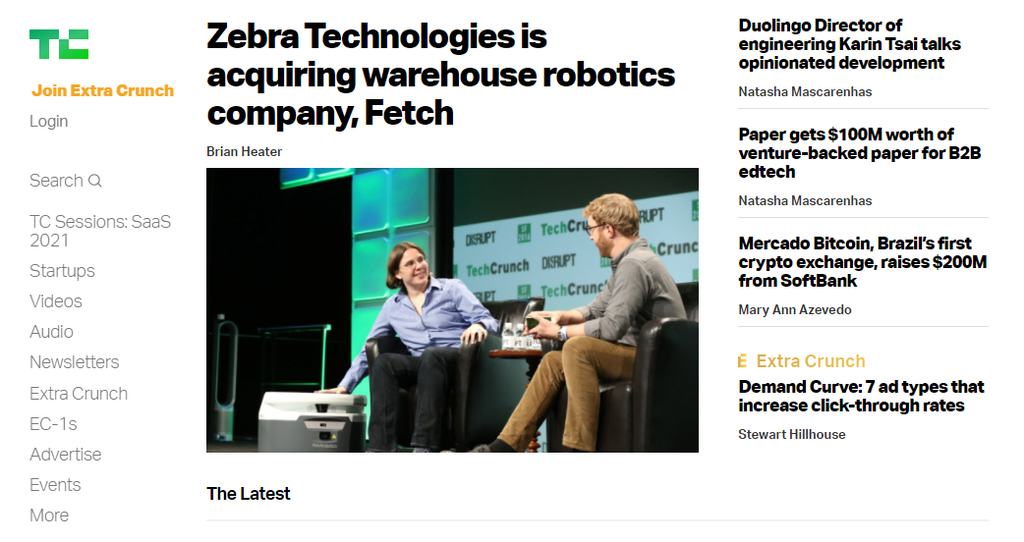Discover the Best tech blog for the current Trends and Technologies in Innovation
Discover the Best tech blog for the current Trends and Technologies in Innovation
Blog Article
How Blockchain Technology Is Revolutionizing Information Security
Blockchain technology is basically modifying the landscape of data safety by introducing a decentralized framework that guarantees improved transparency and strength. Unlike traditional systems, which count on centralized information databases, blockchain distributes data throughout a network, reducing vulnerabilities and single points of failure. Using innovative cryptographic techniques guarantees that information remains tamper-proof, fostering count on among individuals and stakeholders. As sectors rapidly adjust to this technology, concerns occur regarding its wider impact and prospective difficulties. What implications does this shift hold for future data protection strategies and regulatory structures? The answers might amaze you (Best tech blog).
The Basics of Blockchain
Blockchain innovation, a revolutionary concept in electronic data monitoring, basically transforms just how info is saved and safeguarded. At its core, a blockchain is a distributed journal that videotapes deals throughout a network of computer systems, making sure openness and immutability. The modern technology runs on a chain of blocks, each including a listing of transactions. Once a block is filled up, it is time-stamped and connected to the previous block, producing a sequential chain.
Trick to understanding blockchain is the hashing process, which encrypts deal data right into a special alphanumeric code. This cryptographic function makes certain that any type of change in the deal data leads to a totally various hash, thus protecting versus meddling. The agreement device, another important element, validates and validates brand-new purchases via a network of nodes, thereby removing the requirement for a central authority.
Additionally, blockchain's append-only framework makes certain that data, once added, can not be erased or changed. This particular warranties a irreversible and proven document of deals, promoting depend on amongst individuals. As a result, blockchain offers a robust structure for information integrity, supplying sectors a reliable approach for monitoring and managing digital information in a secure, clear fashion.
Decentralization and Security
Decentralization, a core principle of blockchain modern technology, dramatically boosts data security by dispersing control throughout a network instead than relying upon a single, central entity. This circulation reduces the risk of solitary points of failure, which prevail in typical centralized systems. By spreading data throughout many nodes, blockchain ensures that even if one node is jeopardized, the entire network remains safe. This redundancy not just strengthens the integrity of the data but likewise raises its strength to cyberattacks and system failings.

In addition, decentralization encourages individuals with better control over their information. Each participant in the network has access to the entire blockchain, permitting them to validate and examine purchases individually. This transparency promotes trust fund among customers, as they do not need to count on a central authority to guarantee data integrity. On the whole, decentralization is important in enhancing data safety and security in blockchain networks.

Cryptographic Methods
At the heart of blockchain modern technology, cryptographic techniques play a crucial duty in safeguarding information, ensuring both privacy and integrity. Cryptography in blockchain employs a mix of symmetric and asymmetric algorithms to encrypt information, making it easily accessible only to accredited find this parties.
Hash functions are an additional important part, changing input data right into a fixed-size string of characters, successfully producing a special digital finger print for each click here for more info block. This ensures that any type of effort to change the information will result in a totally various hash, hence maintaining the immutability of the blockchain. Additionally, electronic trademarks validate the authenticity and integrity of transactions, supplying a layer of non-repudiation.
The decentralized nature of blockchain, combined with robust cryptographic methods, gets rid of the need for intermediaries, lowering potential susceptabilities. As blockchain modern technology develops, advancements in cryptography such as zero-knowledge evidence and homomorphic encryption remain to improve safety actions, additionally strengthening information defense in this innovative digital ledger system.
Use Situations Across Industries

In the healthcare market, blockchain ensures the secure storage and sharing of person records, promoting interoperability while protecting sensitive information from unapproved accessibility. This technology equips people with control over their clinical history and helps with seamless sychronisation among medical care carriers.
Supply chain management advantages substantially from blockchain's unalterable ledger, which ensures traceability and authenticity of items from beginning to consumer. By enhancing transparency, blockchain aids alleviate concerns such as counterfeiting and dishonest sourcing.
Furthermore, blockchain's decentralized nature is reshaping the power sector by making it possible for peer-to-peer energy trading, where consumers can get and offer excess eco-friendly power directly. This promotes an extra web link reliable and sustainable energy community.
In the realm of intellectual residential property, blockchain offers a tamper-proof platform for creators to sign up and secure their jobs, guaranteeing rightful acknowledgment and reasonable compensation. These varied usage situations highlight blockchain's function as a crucial force in redefining data safety throughout industries.
Future of Data Protection
As we want to the future of information defense, blockchain modern technology is poised to play a pivotal role in safeguarding digital info. With its decentralized and unalterable characteristics, blockchain offers a robust structure for safeguarding delicate data versus unauthorized access and cyber threats. This innovation makes certain that as soon as information is recorded, it is almost impossible to alter without discovery, therefore giving a considerable advantage over traditional data storage approaches.
The combination of blockchain with various other sophisticated technologies, such as expert system and the Internet of Points (IoT), is anticipated to boost data security techniques better. By leveraging smart agreements, organizations can impose and automate safety protocols, lowering human mistake and raising effectiveness. Additionally, blockchain's capacity to provide deducible and clear purchases will strengthen trust and accountability in information management methods.
As regulative landscapes progress, blockchain's compliance-friendly nature will end up being increasingly relevant. It can assist companies satisfy stringent information security laws, such as the General Data Protection Guideline (GDPR) and the California Consumer Personal Privacy Act (CCPA), by giving verifiable records of information handling tasks. Ultimately, blockchain's distinct characteristics position it as a transformative tool in the continuous pursuit to protect the digital world versus ever-evolving cyber threats.
Conclusion
Blockchain technology represents a standard change in data security by leveraging decentralization and cryptographic methods to improve transparency, trust, and information honesty. As cyber hazards advance, blockchain emerges as an essential device for robust data security throughout different industries.
Blockchain innovation is basically changing the landscape of data security by introducing a decentralized framework that assures improved openness and resilience. Unlike typical systems, which depend on centralized data repositories, blockchain disperses data across a network, decreasing susceptabilities and single factors of failing.Decentralization, a core principle of blockchain modern technology, dramatically improves data safety and security by dispersing control across a network instead than counting on a particular, central entity.At the heart of blockchain technology, cryptographic techniques play a crucial function in guarding data, guaranteeing both discretion and stability.Blockchain modern technology represents a standard shift in information protection by leveraging decentralization and cryptographic strategies to enhance openness, trust, and information honesty.
Report this page